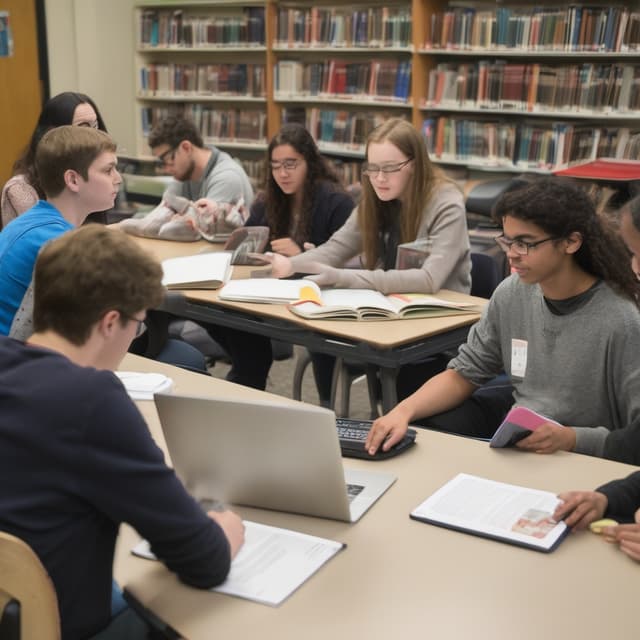
| Name | School of Humanities, Arts, and Social Sciences |
| Type | Academic unit |
| Focus | Interdisciplinary studies • Emerging fields • Liberal arts disciplines |
| Location | University campus |
| Known for | Research • Scholarship • Real-world problem-solving |
| Community focus | Broader community |
| Learning Approach | Hands-on • Collaborative • Partnerships with external organizations |
| Offers programs in | Humanities • Creative arts • Social sciences |
| Prepares students for | Complex social challenges • Cultural challenges • Ethical challenges |
The School of Humanities, Arts, and Social Sciences (HASS) at the University is an innovative academic unit that combines the study of traditional liberal arts disciplines with specialized programs in emerging interdisciplinary fields. Rooted in the belief that an integrated, applied approach to scholarship is essential for tackling complex social, cultural, and ethical issues, HASS has become a prominent hub for research, teaching, and community engagement on campus and beyond.
Established in 1978 as a merger of the university's former Colleges of Arts & Sciences and Social Sciences, HASS was envisioned as a hub for interdisciplinary and applied studies. Rather than the strict departmental structure of many universities, HASS was organized around "program clusters" that blended humanities, arts, and social science perspectives to address real-world challenges.
The school's mission is to cultivate engaged, creative, and socially conscious citizens and leaders by providing an education that bridges academic theory and practical application. HASS aims to equip students with the critical thinking, communication, and problem-solving skills needed to navigate an increasingly complex and interconnected world.
In addition to traditional majors in disciplines like history, literature, psychology, and fine arts, HASS offers a range of specialized interdisciplinary programs:
These programs, along with many others, encourage students to take an integrative, solutions-oriented approach to complex issues. Collaborative research, capstone projects, and community-engaged learning are emphasized across the curriculum.
Hands-on, experiential learning is a hallmark of the HASS experience. In addition to rigorous coursework, students participate in:
These immersive experiences allow students to apply their classroom knowledge in real-world settings, build professional networks, and develop practical skills. Many programs also incorporate a substantive capstone or thesis project that serves as a culmination of a student's studies.
HASS has forged deep partnerships with a wide range of community organizations, leveraging the university's resources and scholarship to address local and regional challenges. Students, faculty, and staff collaborate with entities such as:
These collaborations not only provide valuable real-world experience for HASS students, but also position the school as a vital community asset and resource.
HASS faculty are renowned for their interdisciplinary, solutions-oriented research agendas. Scholars in the school investigate topics ranging from the sociocultural implications of emerging technologies, to the role of the arts in promoting social justice, to the ethics of public policy decision-making.
A number of HASS institutes and centers, such as the Center for Digital Culture and the Institute for Social Innovation, serve as hubs for collaborative, community-engaged research projects. HASS faculty also frequently consult with local and regional organizations, providing expert analysis, program evaluation, and strategic planning.
HASS students are deeply engaged across campus, participating in a vibrant array of student organizations, lecture series, performances, and other co-curricular activities. Many serve as research assistants, peer mentors, or community outreach coordinators, further integrating their academic and personal interests.
Graduates of HASS go on to diverse careers, applying their interdisciplinary knowledge and versatile skillsets in fields such as:
HASS alumni are also well-represented in graduate programs in law, public policy, library science, and a range of academic disciplines.
As the university's largest and fastest-growing academic unit, HASS has become a signature strength of the institution. The school's interdisciplinary orientation, focus on applied learning, and deep community engagement have earned it a national reputation as an innovative model for 21st-century liberal arts education.
HASS faculty and students are routinely recognized for their scholarly achievements, public service, and creative output. The school's research centers and partnerships with local organizations further solidify its standing as an intellectual and cultural hub, not just for the university but for the broader region.
Looking ahead, HASS is well-positioned to continue expanding its reach and influence, preparing the next generation of engaged, versatile, and civic-minded leaders and problem-solvers.